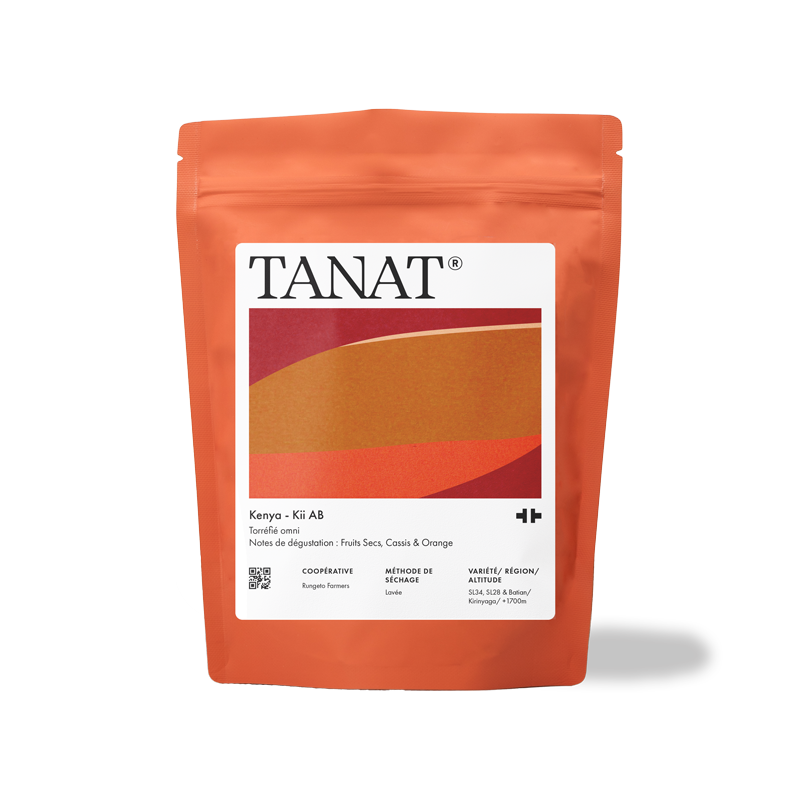1
/
of
1
TANAT COFFEE
TANAT - Kii AA | Kenya - Washed - SL 28, SL 34, Batian, Ruiru 11
TANAT - Kii AA | Kenya - Washed - SL 28, SL 34, Batian, Ruiru 11
 Origin: Kenya
Origin: Kenya
 Tasting Notes: Dried Fruit, Blackcurrant, Orange
Tasting Notes: Dried Fruit, Blackcurrant, Orange
 Process: Washed
Process: Washed
 Varieties: SL 28, SL 34, Batian, Ruiru 11
Varieties: SL 28, SL 34, Batian, Ruiru 11
 Producer: Rungeto Farmers Coop Society
Producer: Rungeto Farmers Coop Society
 Harvest: Winter 2024
Harvest: Winter 2024
 Roast Profile: Medium
Roast Profile: Medium
 Recommended Brew: Espresso and Filter
Recommended Brew: Espresso and Filter
 Roast Date:
Roast Date:
Regular price
$24.00 CAD
Regular price
Sale price
$24.00 CAD
Unit price
/
per
Free Shipping Over $85 CAD (Canada) ❘ $100 USD (US) ▪︎ Free GTA Pickup Available
Couldn't load pickup availability
TANAT Coffee is located in Paris, France
From TANAT
SCORE 87+
We've been working with this cooperative for over 4 years, and the quality of their coffees never ceases to impress us. Faithful to the Kenyan terroir, they are distinguished by their beautiful acidity and vibrant profile. In the cup, you'll find intense notes of blackcurrant, sublimated by hints of orange and dried fruit, bringing a delicate, balanced sweetness.
Share



